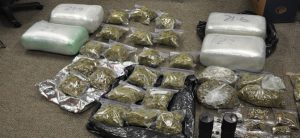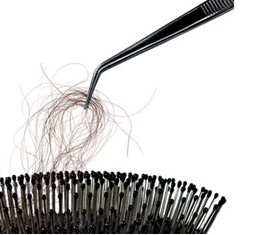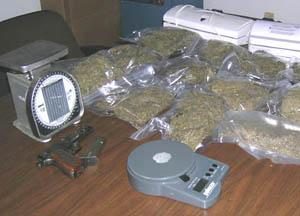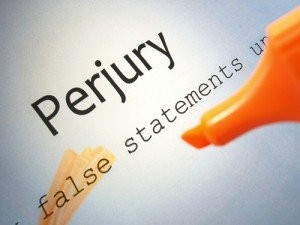Late last week I got a call from a new client greatly concerned because he had just been arrested and charged with heroin trafficking in Lawrence, Massachusetts. The man was at an apartment in Lawrence apparently looking for some heroin to satisfy his habit. Several other customers were there as well. While buying a small quantity of the drug several law enforcement officials entered the home pursuant to a search warrant. A search revealed in excess of two hundred grams of heroin, an amount consistent with trafficking. Everyone present was arrested and charged with trafficking heroin. Continue Reading
Articles Posted in Drug Crimes
First Details of Attorney General’s Report on Drug Chemist’s Misconduct Revealed
Within the past few months, Massachusetts drug testing labs have been under fire for two separate instances in which chemists working for the state engaged in misconduct that potentially could have an impact on thousands of drug convictions. Both Annie Dookhan and Sonja Farak were chemists at state run drug sample testing labs who engaged in behavior that produced inaccurate test results. The drug chemist’s misconduct has been greatly scrutinized for months now. Continue Reading
Automatic License Suspension for Drug Convictions Repealed
One of the unintended consequences of being convicted on criminal drug charges in Massachusetts was that your driver’s license would automatically be suspended. However, thanks to a new law that unanimously passed in both chambers of the Legislature and was signed by Governor Charlie Baker, this automatic driver’s license suspension for drug crimes has been repealed and the five hundred dollar reinstatement fine associated with the suspension has been lifted, too. Luckily, the repeal is effective immediately. Anyone whose license was suspended under the old law will have it reinstated within thirty days of the new bill’s passage, and any records related to the driver’s license suspension will be protected from public access. Continue Reading
Victims of Annie Dookhan Debacle Unlikely to Get Compensation From State
Bad Hair Evidence Analysis Technique Lead to Wrongful Convictions
The Massachusetts state police recently have begun to review numerous criminal cases where convictions were made based upon hair sample evidence according to WCVB 5 News. Apparently state crime lab workers were trained on how to perform hair evidence analysis testing incorrectly by the Federal Bureau of Investigation, and a number of criminal defendants have been wrongfully convicted as a result of this improper analysis technique. Continue Reading
Making and Selling Fake Drugs
It often comes as a surprise to those who are arrested by the police for making or selling fake drugs that the charges are just as serious as being caught dealing in real, illegal substances. You can face jail time, steep fines, and significant penalties. You might think that because you are not in fact making and selling a real illegal drug that your actions are simply no harm no foul. You did not really do anything wrong, right? That is absolutely untrue. Continue Reading
Drug Paraphernalia Charges in Massachusetts
Law enforcement in Massachusetts take the possession and sale of drug paraphernalia very seriously. That is to say, getting busted with drug paraphernalia is nearly as bad as being busted with illegal drugs in Massachusetts. Under M.G.L. Chapter 94C, Section 32I, it is illegal for a person to sell, possess, or purchase with the intent to sell or manufacture with the intent to sell, drug paraphernalia, knowing that the buyer or user will use the paraphernalia to do illegal drugs. Continue Reading
How Can I Prove Someone is Lying at My Trial?
Central to almost every criminal case is the issue of credibility. The defense is almost always challenging the testimony of a police officer, an expert witness or an eye witness to a crime. Not every alleged crime is caught on tape. Sometimes the defense and the district attorney have to rely on witnesses to establish and prove their cases. One of the most common questions I get from prospective clients is how can I prove someone is lying at my trial? Continue Reading
What is Hearsay in Massachusetts?
You have probably heard it raised as an objection in movies or television shows, “Objection! Hearsay, Your Honor.” But what is hearsay? What does that mean? Many people think of it as “he said, she said” evidence, which is partially correct. Hearsay in Massachusetts (and for that matter everywhere) means that someone said something to someone, but the information did not come directly from the horse’s mouth, so to speak. Continue Reading
Diversion Instead of Prosecution of Drug Possession Charges in Massachusetts Courts
At least one Massachusetts district attorney seems to understand that not everyone who possesses drugs or commits crimes as a result of drug addiction needs to be prosecuted and treated like a criminal. The Essex County District Attorney’s Office frequently utilizes a decade old treatment program to educate, rehabilitate and forgive select offenders rather than forcing them to defend criminal charges. In that county, diversion instead of prosecution of drug possession charges is the preferred course of action for select crimes. Aspects of the program from a criminal defense perspective are discussed in this article. Continue Reading
 Massachusetts Criminal Defense Attorney Blog
Massachusetts Criminal Defense Attorney Blog





![anniedookhan1122[1]](https://www.massachusettscriminaldefenseattorneyblog.com/files/2019/01/anniedookhan11221-300x220.jpg)





